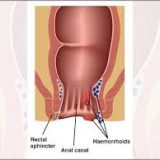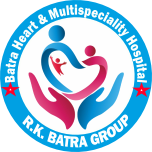Intensive Care Unit
The intensive care unit (ICU) is equipped with a wide array of specialized medical devices and equipment designed to support the care of critically ill patients. These tools are essential for monitoring patients, providing life-sustaining treatments, and facilitating diagnostic and therapeutic interventions. Here is a more comprehensive overview of the equipment commonly found in the ICU and their importance:
Ventilators:
Ventilators are crucial for patients who require mechanical ventilation to support their breathing. These life-saving devices deliver oxygen to the lungs and remove carbon dioxide, providing respiratory support for patients with respiratory failure, acute lung injury, or other critical conditions.
Cardiac Monitors:
Cardiac monitors continuously display an individual’s heart rate, rhythm, and blood pressure. They provide vital information for the early detection of cardiac arrhythmias, changes in hemodynamics, and the effectiveness of interventions such as medications or defibrillation.
Pulse Oximeters:
Pulse oximeters measure the oxygen saturation of a patient’s blood, providing real-time information about their respiratory status and oxygenation. Monitoring oxygen levels is crucial for assessing respiratory function and guiding the administration of supplemental oxygen or ventilator settings.
Infusion Pumps:
Infusion pumps are used to deliver precise and controlled doses of medications, fluids, and blood products intravenously. They help ensure accurate administration of critical medications and maintain hemodynamic stability in critically ill patients.
Continuous Renal Replacement Therapy (CRRT) Machines:
CRRT machines are used for continuous renal replacement therapy in patients with acute kidney injury or severe electrolyte imbalances. These devices help to remove waste products, control fluid balance, and manage acid-base imbalances in patients with impaired renal function.

Intracranial Pressure (ICP) Monitors:
In patients with traumatic brain injury, intracranial hemorrhage, or other neurological conditions, ICP monitors are employed to measure pressure within the skull. This information is essential for guiding treatment and preventing secondary brain injury.
Enteral Feeding Pumps:
Enteral feeding pumps are used to deliver liquid nutrition directly into the gastrointestinal tract, ensuring that critically ill patients receive essential nutrients when unable to eat or drink normally. These pumps support the patient’s nutritional needs during their recovery.
Syringe Pumps:
Syringe pumps provide accurate and controlled infusion of medications and fluids in small volumes. They are often used for delivering potent medications, such as vasoactive drugs or sedatives, at precise rates to achieve therapeutic effects.
Point-of-Care Ultrasound Machines:
Point-of-care ultrasound machines are portable imaging devices that allow intensivists to perform real-time assessments of cardiac function, lung status, and vascular access at the bedside. They aid in diagnostic evaluations and procedural guidance, such as central venous catheter placement or thoracic evaluations.
ECG Machines:
Electrocardiogram (ECG) machines are used to record the electrical activity of the heart, providing valuable information about cardiac rhythm, conduction abnormalities, and evidence of myocardial ischemia or infarction.
Mechanical Circulatory Support Devices:
Certain ICUs may have equipment such as intra-aortic balloon pumps or ventricular assist devices to provide temporary mechanical support to the heart in patients with cardiogenic shock or severe heart failure.
Invasive and Non-invasive Blood Pressure Monitors:
Blood pressure monitors are essential for tracking changes in a patient’s hemodynamics and guiding the management of hypertension, hypotension, or shock. Non-invasive monitors use cuffs, while invasive monitors may be arterial lines for continuous blood pressure readings.
Temperature Management Devices:
ICU equipment includes devices for monitoring and regulating a patient’s body temperature, such as surface cooling or warming systems, to manage fever, hypothermia, or to support targeted temperature management after cardiac arrest.
Portable X-ray and CT Scanners:
Access to mobile imaging technologies allows for rapid diagnostic evaluation at the bedside, enabling healthcare teams to assess changes in lung fields, diagnose new pathologies, or guide the placement of invasive devices.
Integrated Patient Monitoring Systems:
These systems provide centralized, real-time monitoring of multiple physiological parameters, including vital signs, respiratory status, and invasive pressures, allowing healthcare providers to closely track a patient’s condition and respond promptly to changes.
Specialized Beds and Positioning Devices:
ICU beds are equipped with features to facilitate patient positioning, assist with respiratory care, prevent pressure ulcers, and support the comfort and safety of critically ill individuals during their stay in the ICU.
Airway Management Equipment:
This includes laryngoscopes, endotracheal tubes, laryngeal mask airways, and other tools for airway assessment, intubation, and maintaining a patient’s airway patency and oxygenation.
These essential pieces of equipment play a vital role in supporting the care of critically ill patients in the ICU. They enable healthcare providers to monitor patients closely, deliver life-sustaining treatments, perform diagnostic assessments, and respond effectively to emergent situations, ultimately contributing to improved patient outcomes and quality of care within the intensive care setting.
Why choose
- An expert team of experienced Cardiologists with more then 20 years experience.
- Comprehensive Heart Care from Preventive to Diagnostic and Therapeutic
- Multidisciplinary Care for all kinds of Heart Ailments
- 24X7 Heart Attack (mycardio infraction) Support
